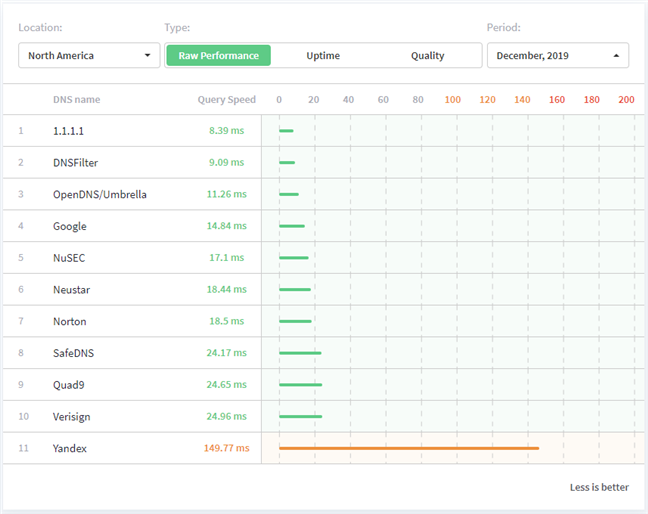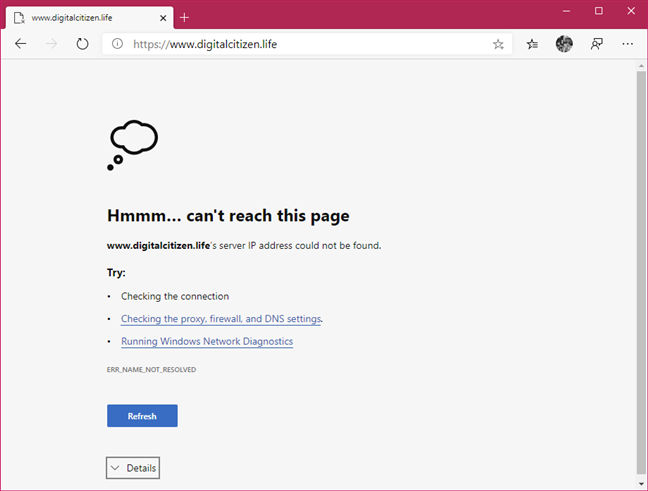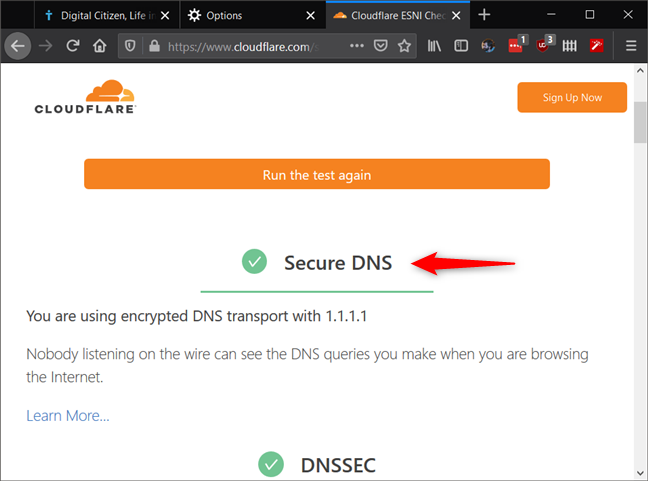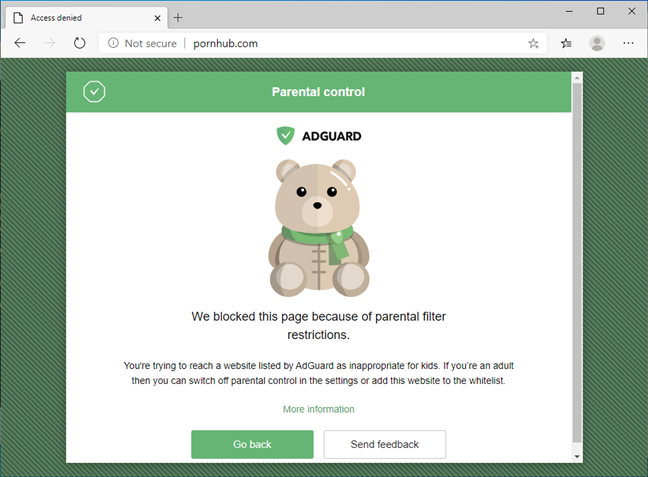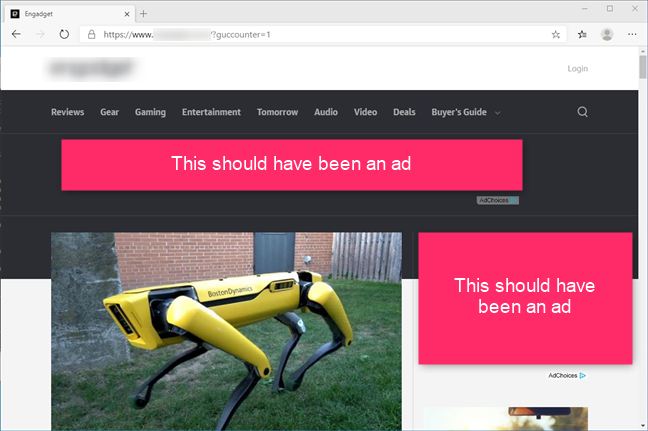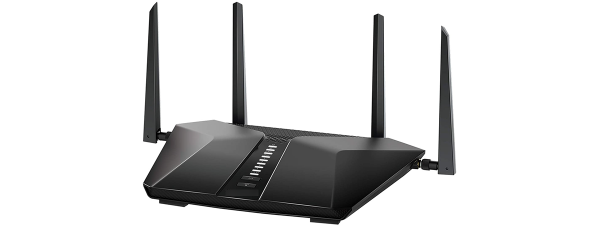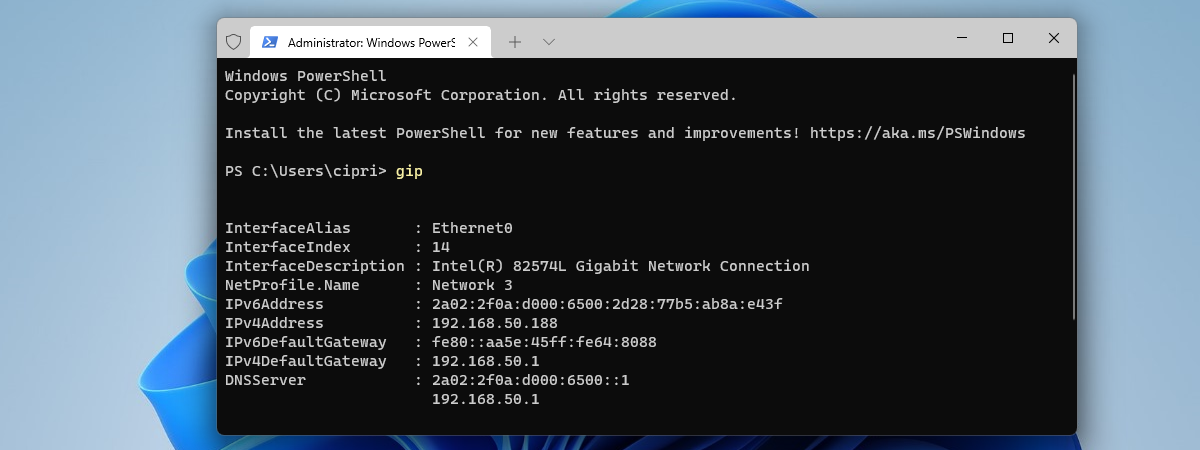
Were you browsing the internet when suddenly all hell broke loose and you got stuck with the dreadful "DNS address could not be found" message? Were there times when you would have done anything to get your favorite websites to load even a little bit faster? Or have you been looking for a way to enforce parental controls all over your local network, without having to manually configure each and every computer and device in your home? All these questions and problems can be answered and resolved with the help of public, third-party DNS servers. Read on to find out why you should change the default DNS servers used by your network and devices right now:
What's a third-party DNS server?
Third-party DNS servers are public DNS servers that are maintained by various operators around the globe, and represent an alternative to the DNS servers provided by our ISP (Internet Service Providers). If you need a refresher on DNS servers, they're responsible for translating and identifying the names of websites into numerical IP addresses. For more details, read What is DNS? How do I see my DNS settings in Windows?
1. Faster web browsing speed
The DNS servers offered by third party companies such as Cloudflare, Google, OpenDNS, or AdGuard can be faster than those maintained by your local internet service provider. If that's the case, using third-party DNS servers can mean a faster web browsing experience. However, if those public DNS servers are too far from you geographically, the speed of your connection can be significantly hindered by the sheer distance. Either way, it's worth investigating whether web browsing gets faster when you're using specific third party DNS servers.
2. Improved reliability and stability
Some internet service providers are not investing enough resources in maintaining their DNS servers and in making sure that their uptime is as close to 100% as possible. When DNS servers fail to work correctly, you can have issues in accessing internet websites or other resources. If your internet service provider is not well known for its reliability and professional services, changing your DNS servers to third party servers can offer you a more stable internet connection.
3. Protection against phishing or otherwise malicious websites
Although it's not the case with all the public DNS servers out there, some of them keep updated lists of malicious websites, which are automatically blocked. If you use such DNS servers, then you add an extra layer of protection between you and the malware that lurks all over the web. However, keep in mind that you should look at this more as a welcomed addition to your internet security suite, rather than a replacement for it.
4. Improved security
Because the DNS (Domain Name System) was initially designed as an open distributed system, it is vulnerable and prone to multiple forms of attacks from hackers and malicious parties. You might have heard or read news about DNS cache poisoning or DoS (Denial-of-Service) attacks: these are just two of the types of attacks that target DNS systems. They can lead to situations like users being unable to visit legitimate websites and being redirected to malicious web resources, or simply flood the DNS servers that you're using, which in turn makes web browsing for you extremely slow or even impossible. Third-party DNS servers are usually better prepared to handle such attacks because they have and use better security measures than ISPs (Internet Service Providers) usually implement in their own DNS servers.
For example, DNS providers such as Google or Cloudflare offer support for DNSSEC, which fights against DNS cache poisoning attacks, or DNS over HTTPS, which encrypts DNS queries and thus improves the security between your computer and the DNS servers. If you want to know more about DNS over HTTPS and how to use it, read What is DNS over HTTPS or Secure DNS lookups? Enable it in Google Chrome! and How to enable DNS over HTTPS in Firefox.
5. Parental controls
Some DNS servers, such as OpenDNS, AdGuard, or Yandex.DNS, also offer parental control options. If you are concerned about the safety of your children and the types of content that they access online, certain DNS servers can help you block their access to pornographic content, violent or otherwise inappropriate websites. Because DNS servers can also be set on your wireless router and not only on individual computers and devices, they are one of the best ways in which you can enforce parental controls throughout your home network.
6. Ad-blocking by filtering ads at the DNS level
A few of the DNS providers out there maintain public DNS servers that not only enhance your security and privacy but also offer ad-blocking features. For example, AdGuard's DNS servers can block advertisements at the DNS level. In other words, if you configure your router or devices to use the DNS servers from AdGuard, ads are blocked on all the websites you visit, as well as in your apps and games. The DNS servers that offer ad-blocking use ad filter lists to do that, so they can't block absolutely all the ads roaming on the internet, but they can stop a lot of them from showing up on your PCs and devices.
7. Censorship bypass
Just like virtual private networks and some proxy servers, DNS servers can also be used to bypass censorship and other types of geographical limitations enforced in your country or region. DNS servers have nowhere near the efficiency you get from a good VPN service, but they can help in some instances where governments or internet service providers block your access through their DNS servers. You just use a different DNS server and you are done with the censorship.
8. Faster updates to the DNS database
Big companies that offer public DNS services, such as Google, OpenDNS, or Cloudflare, have the excellent habit of refreshing their database of IP addresses faster than the DNS servers of most internet service providers. Therefore, if you are dealing with websites that you can no longer access because they have changed their IP address and your DNS hasn't yet refreshed its database, then using a large public DNS service can help.
Do you intend to start using third-party DNS servers?
There are many cases in which third party public DNS servers can prove to be a better choice than those provided by your internet service provider. Have you ever considered making the switch? Or have you already done it? Share your experiences with us in the comments below.


 27.01.2020
27.01.2020 